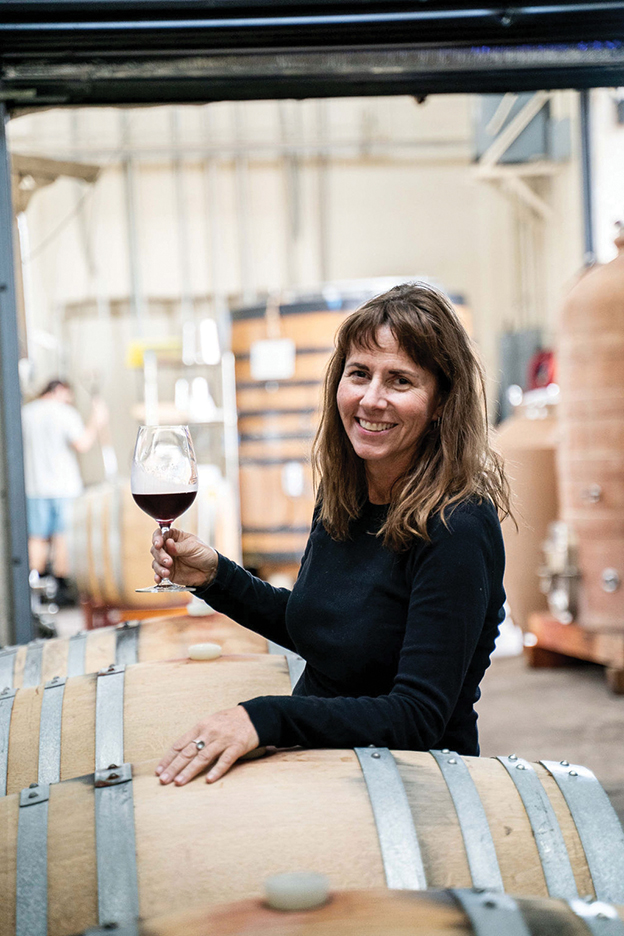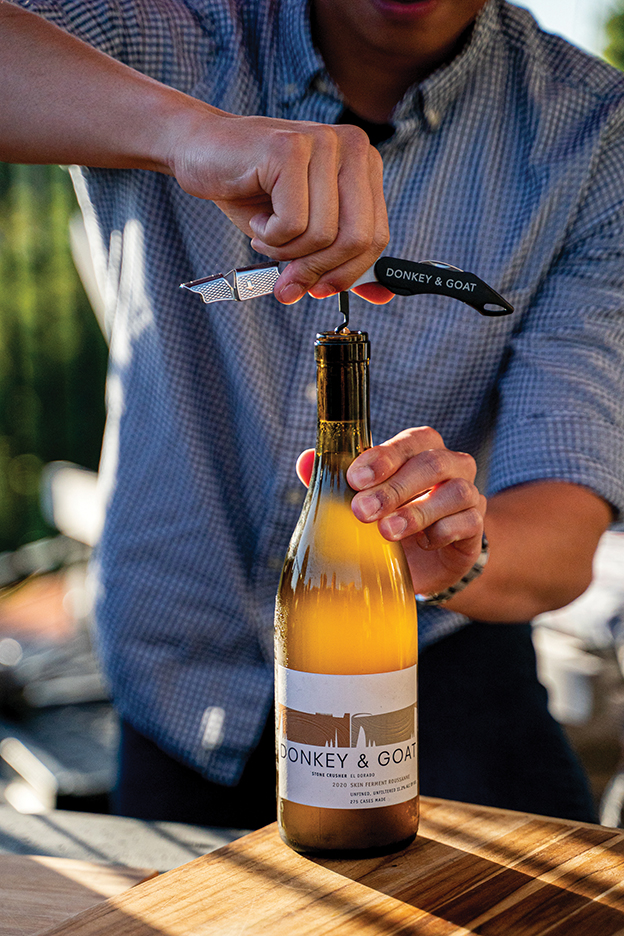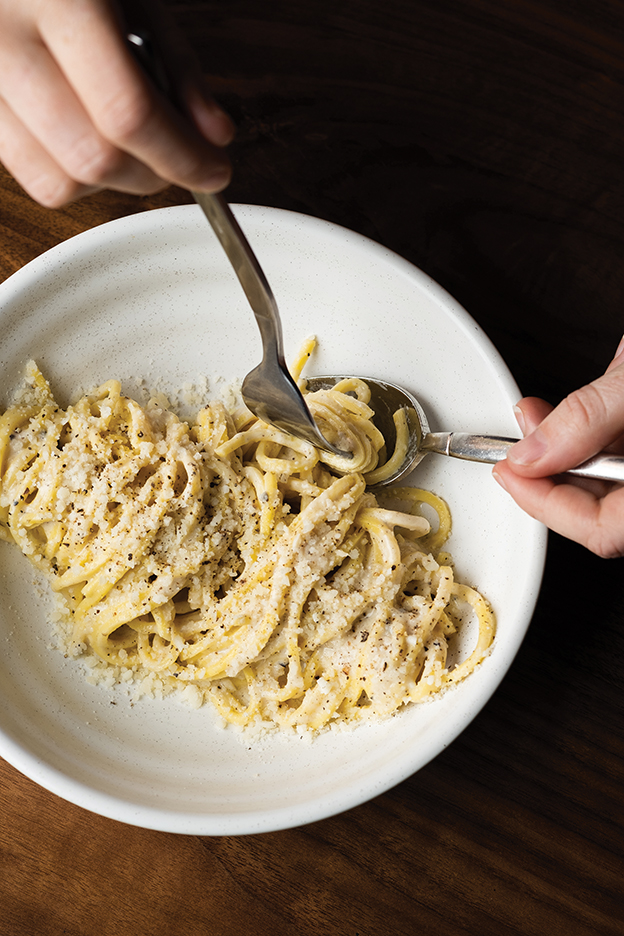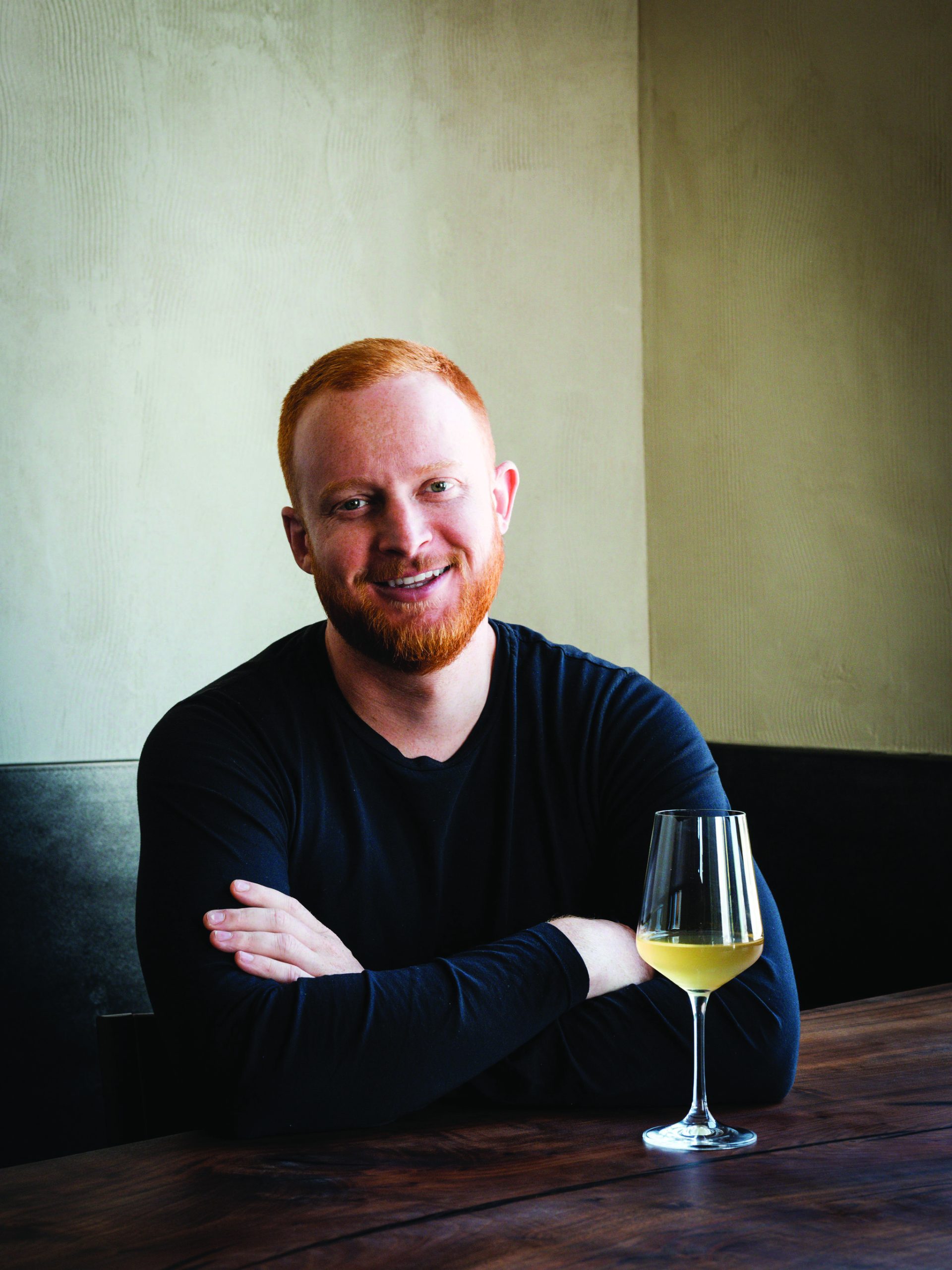If the wine you’re presented possesses a rusty, amber hue instead of pink, it’s not the flattering lighting. Rather, your trend-conscious host has selected a bottle of fashionable orange wine.
Rosé wines, a favorite summertime import from Provence, are now ubiquitous, mass-produced from Australia to California for a growing market of wine drinkers looking for something refreshing, but more memorable than a standard Chardonnay or Sauvignon Blanc. Now, orange wines — they have been produced for millennia, but are just now entering the consciousness of American wine lovers — are occupying entire sections of wine lists.
Orange wines, also known as skin-contact wines, are the result of winemakers leaving skins in the juice during the fermentation process of white grapes, which creates golden, rusty hues that often appear orange in a glass. Orange wines differ from rosés, which are produced from red grapes whose skin imparts a warm blush. In general, orange wines are more textured than whites, with pleasant acidity and modest to moderate tannins.
Several trends are contributing to the drink emergence of orange wines, including the increasing popularity of rosés, accelerated imports from Eastern European nations such as Slovenia, Croatia and Georgia, and a preference among consumers for naturally produced wine. The geographic diversity of orange wines is impressive. Recommended wines cited in a recent Wine Enthusiast article included vintages from Portugal, Austria, Australia, South Africa, California, and Washington.
In California, young winemakers dedicated to creating natural products are increasingly experimenting with orange wines, which have traditionally been made with no preservatives or other additives. After learning the art of crafting natural wines from pioneering French winemaker Éric Texier in the Rhône Valley, Jared Brandt and Tracey Rogers founded Donkey & Goat in 2004, the first natural winery in Berkeley. Others have followed, coalescing around Donkey & Goat to make a small section of Berkeley a hub of California’s natural wine industry.
Because of the winery’s dedication to natural production, Donkey & Goat has been a leader in the California orange wine movement, currently offering a skin-contact Grenache Blanc from vineyards in El Dorado County and a Pinot Gris from Anderson Valley grapes. Donkey & Goat’s 2019 Stone Crusher is made from skin-fermented Roussanne, a Rhône Valley varietal gaining a foothold in California, and features stone fruit notes while exhibiting an appealing golden hue.
“Younger wine drinkers tend to gravitate toward natural wine and if your starting point is natural wine, it won’t take long before you hear about orange wines,” says Rogers, who herself appreciates the versatility of these products. Noting that their textural and aromatic qualities can vary greatly, the winemaker reports, “In very general terms, skin contact wines can hold up to more heat, such as Thai cooking, than traditional direct-press wines.”
The tourism bureau in Sonoma County has recognized that orange wine is having its moment, and its website provides a guide to local wineries specializing in skin-contact products. The selection ranges from major producers such as DeLoach Vineyards and Pellegrini to boutique operations like Joseph Jewell Wines and Two Shepherds. The trend is also gaining traction in Oregon’s Willamette Valley wine region.
Sam Bogue serves as beverage director for Flour + Water Hospitality Group, where the culinary talents of co-chefs Thomas McNaughton and Ryan Pollnow draw diners to San Francisco restaurants Flour + Water, Penny Roma and Flour + Water Pasta Shop. Bogue appreciates the synergies between orange wines and pasta dishes. “They have the acidity of white wines, but with enough tannins to hold up to richer sauces or proteins,” says the experienced sommelier. Noting that grape skins act as a natural preservative, appealing to environmentally conscious consumers, Bogue adds, “These wines represent what younger wine drinkers are trying to get into their glasses these days.”
Bogue has been developing Pasta Water wine, a collaboration between Flour + Water Hospitality Group and Subject to Change Wine Co., which specializes in orange-hued skin-contact wines. The Richmond, California-based winery has proven successful in producing natural wines to scale, says Bogue, who reports that Pasta Water (released this spring) is created from Malvasia Bianca grapes, an aromatic Mediterranean varietal. In addition to their ability to pair well with Flour + Water’s signature pasta dishes,
Bogue notes that orange wines tend to be refreshingly unpretentious. “With Pasta Water, we’re trying to make a wine you don’t need to overthink, trying to make the world of wine a bit more playful.”
Subject to Change Wine Co. was founded in 2017 by Alex Pomerantz, intent on establishing a winery dedicated to the production of natural wines. “I observed how much natural wine consumed here in California was actually imported wine,” says the winemaker, who adds, “We didn’t have a terroir problem, but more of a wine philosophy problem.”
In addition to Pasta Water, which is one of four private labels, Subject to Change’s playful lineup of orange wine includes Disco! and Pet Nap, both made from Mendocino County Sauvignon Blanc. Pomerantz believes Rhône Valley varietals are well suited for orange wine production, and his Unsung Hero is crafted from a blend of Marsanne, Roussanne and Viognier. “Orange wines are the red wine drinker’s white wine,” suggests Pomerantz, who explains, “They have the flavor profile of white wine, but the texture of red.”
Subject to Change’s winemaker advises that while orange wines have ancient origins, they remain a commercial novelty in the U.S. and demand is still accelerating. “We’re confident the category will continue to expand, and we genuinely love making and drinking these wines,” says Pomerantz.






